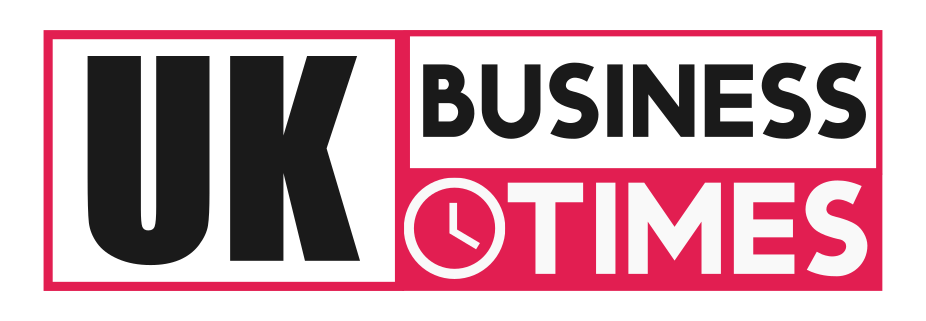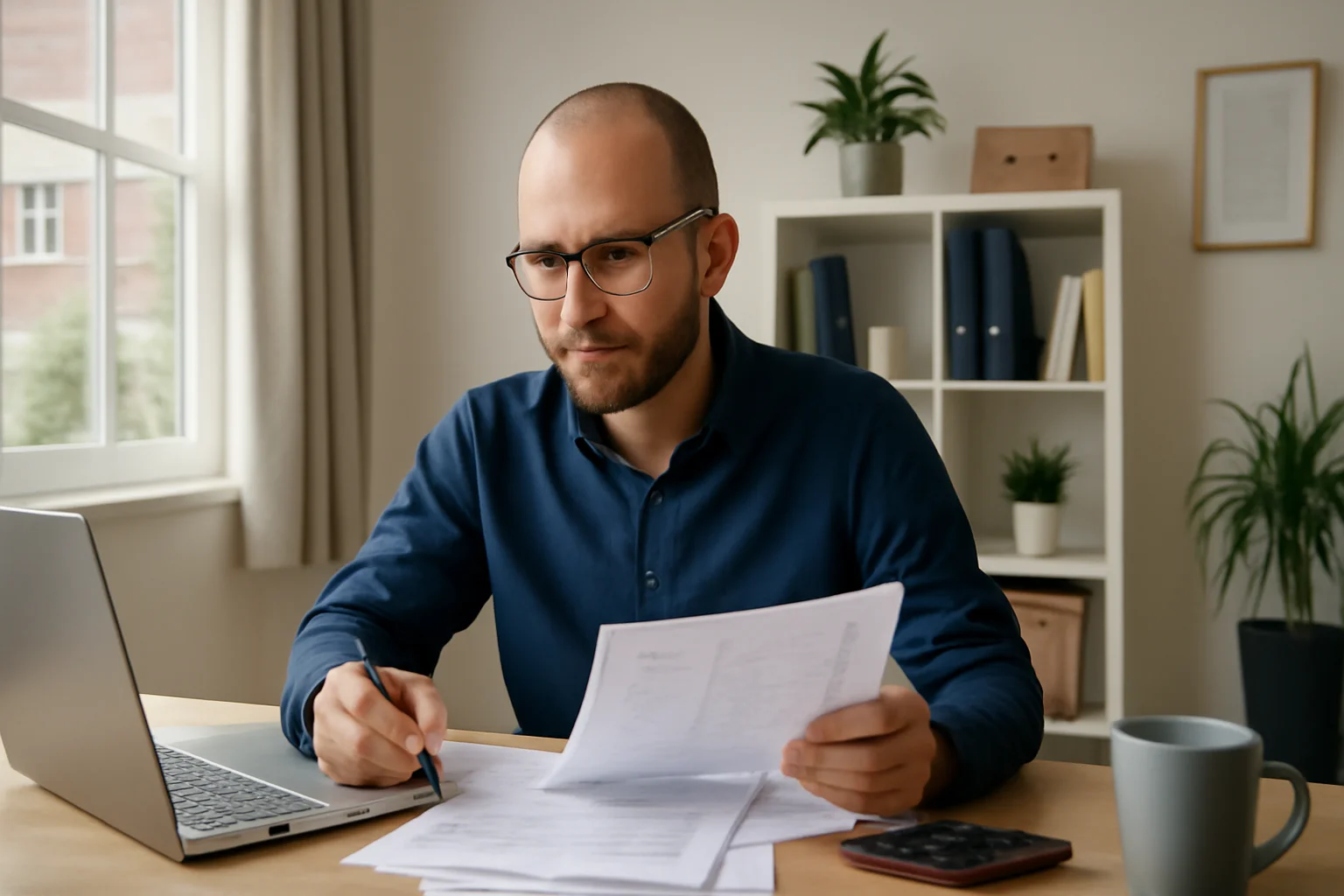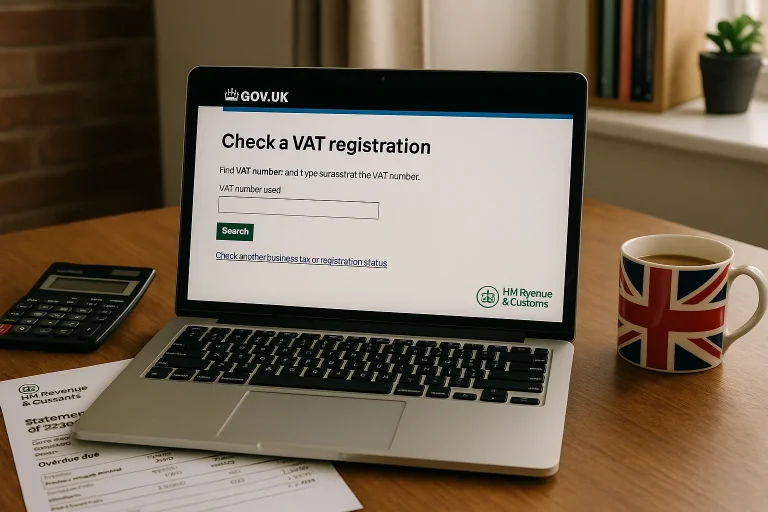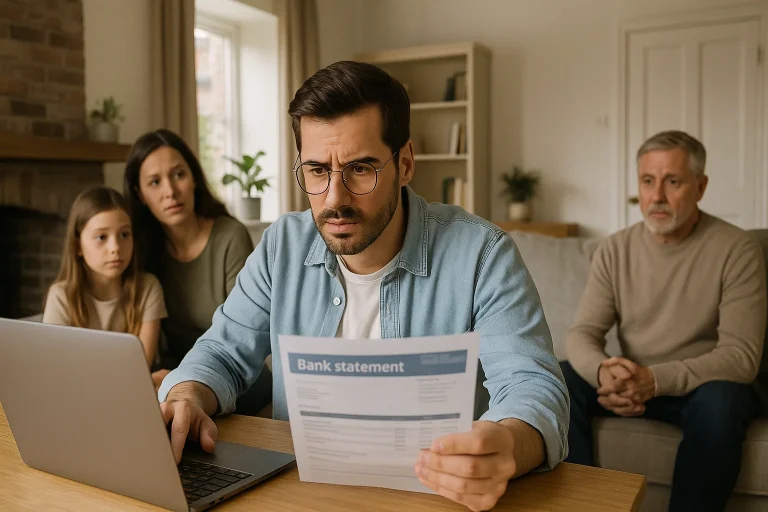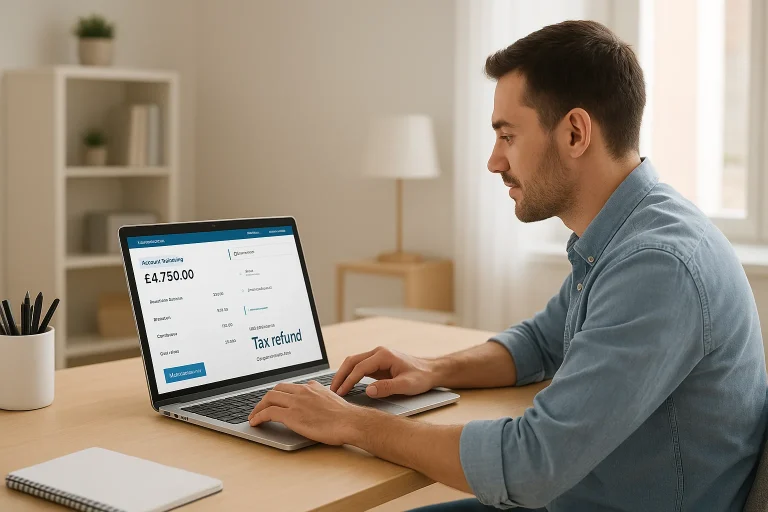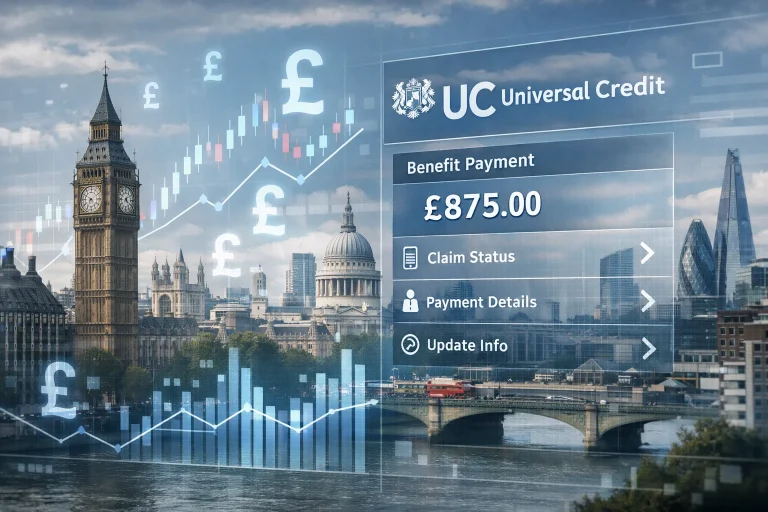Understanding the expenses you can claim as a sole trader in the UK is fundamental to operating efficiently and legally. Many self-employed individuals unknowingly pay more tax than necessary due to uncertainty around what qualifies as an allowable business expense.
Claiming legitimate expenses correctly can significantly reduce your taxable profit, leading to lower income tax and National Insurance obligations.
This detailed guide outlines everything you need to know, from the definition of business expenses to how to calculate and report them properly on your tax return. We’ll also explore common mistakes, clarify HMRC’s expectations, and help you keep your records in order.
What Are Business Expenses and Why Do They Matter?

Business expenses are the costs incurred in the normal operation of your business. For sole traders, these can be deducted from your gross income to determine your taxable profit. This is the amount on which HMRC calculates your income tax and National Insurance contributions.
If your annual turnover is £40,000 and your allowable business expenses total £12,000, you’ll only pay tax on the remaining £28,000. This approach helps ensure that you’re only taxed on your true earnings, not on the gross income that includes money you had to spend to keep your business running.
Allowable expenses must meet the HMRC criteria of being “wholly and exclusively” for business purposes. If a cost has any significant personal use, it needs to be adjusted accordingly before it can be claimed.
What Expenses Can You Claim as a Sole Trader in the UK?
There are many categories of expenses that are recognised by HMRC as allowable for sole traders, provided they are incurred strictly for business activities.
Office and Administrative Expenses
Office supplies such as stationery, printing materials, postage, and phone bills are commonly claimed. If you pay for business software on a subscription basis or use licences that last less than two years, these are allowable.
Costs associated with maintaining a business workspace, like rent, business rates, insurance, and utilities, are also deductible. If you use part of your home as your office, only a proportion of your home bills can be claimed, which we’ll address in a later section.
Travel, Mileage, and Accommodation
Sole traders can claim travel costs such as:
- Train, bus, and taxi fares
- Fuel, insurance, servicing, and breakdown cover for business travel
- Hotel accommodation and meals when staying overnight for work
You cannot claim for commuting between home and a regular workplace. However, if you’re an itinerant worker or visit multiple client locations, travel costs are allowable.
Mileage Allowance Rates (2025/26):
| Vehicle Type | First 10,000 miles | Additional miles |
|---|---|---|
| Cars & Vans | 45p per mile | 25p per mile |
| Motorbikes | 24p per mile | 24p per mile |
Using HMRC’s mileage rates simplifies claims without needing to track fuel and maintenance separately.
Staff, Subcontractors, and Training
You may deduct the cost of:
- Employee salaries
- National Insurance contributions
- Agency fees and subcontractor charges
- Staff bonuses, pensions, and benefits
- Work-related training to maintain or improve existing skills
However, you cannot claim for courses that teach you completely new skills unrelated to your existing business operations.
Marketing and Advertising
Promotional activities such as advertising in newspapers, maintaining a website, creating branded materials, and digital marketing are all deductible.
You may also claim costs for professional subscriptions to trade bodies or industry-specific journals if they directly relate to your business.
What Expenses Cannot Be Claimed by Sole Traders?
Despite the wide range of claimable costs, HMRC specifically disallows certain expenses even if they relate to your business environment.
Common non-allowable expenses include:
- Everyday clothing (even if worn at work)
- Client entertainment or business meals not part of travel
- Fines and penalties (e.g., parking tickets)
- Loan repayments (although interest on business loans is claimable)
- Depreciation of assets (handled via capital allowances instead)
- Charitable donations (unless via Gift Aid and not as a business expense)
Understanding the difference between business-related and personal spending ensures compliance and reduces the risk of an HMRC audit.
How Does HMRC Define ‘Wholly and Exclusively’ for Business Expenses?

The HMRC’s “wholly and exclusively” rule is one of the most important principles when determining what business expenses you can claim as a sole trader in the UK.
It essentially means that an expense can only be deducted from your taxable profits if it is incurred entirely and solely for business purposes, not partly for personal use.
In practical terms, this rule ensures that only the business-related portion of your spending is tax-deductible. If you buy or use something for both business and personal reasons, you need to apportion the expense fairly and claim only the percentage that directly relates to business activity. HMRC expects this apportionment to be reasonable and backed up by clear records.
Example:
If your mobile phone contract costs £30 per month and you use it 60% for business calls and 40% for personal use, only £18 of that monthly bill is allowable.
For some mixed-use items, where personal use is minor and incidental, such as using protective gear on your way to work, the full cost may still be allowable, but documentation is essential.
How Do Capital Allowances Work for Equipment and Vehicles?
Larger business purchases that last several years, such as vehicles, laptops, tools, or office furniture, are considered capital assets. Instead of claiming the entire cost as an expense in one year, you’ll typically claim capital allowances, which spread the cost over time.
Capital Allowance Options:
| Item Type | Claim Method | Notes |
|---|---|---|
| Computers | AIA or WDA | Use AIA if claiming in the purchase year |
| Vans and Equipment | AIA or WDA | Use when not claiming simplified mileage |
| Cars | Capital Allowance Only | Cannot use AIA for cars |
The Annual Investment Allowance (AIA) allows you to deduct the full value of qualifying assets (up to a limit) in the same tax year. For cars, use the Writing Down Allowance (WDA) instead, applying a percentage annually depending on the vehicle’s CO2 emissions.
If you use cash basis accounting, only cars are eligible for capital allowances. All other equipment purchases should be claimed as regular expenses.
Should You Use Simplified Expenses or Actual Costs?

HMRC offers sole traders the option to use simplified expenses, making it easier to calculate and claim certain business costs without detailed record-keeping.
These flat-rate allowances can be applied to expenses such as business mileage, working from home, and living on business premises.
For instance, if you work from home for over 25 hours a month, you can claim a fixed flat-rate amount for home office costs instead of calculating actual expenses. This method saves time and simplifies bookkeeping while still ensuring fair deductions for business use.
| Monthly Hours Worked from Home | Flat Rate Per Month |
|---|---|
| 25–50 | £10 |
| 51–100 | £18 |
| 101+ | £26 |
Alternatively, you can calculate actual usage, dividing total home costs like electricity, rent, and internet by the number of rooms used and hours worked for business. This method usually yields higher deductions but requires detailed records and apportionment.
Each method has its pros and cons. Simplified expenses are easier to apply, while actual costs may be more accurate and advantageous for high-expenditure businesses.
How to Claim Business Expenses on Your Tax Return?
You’ll claim expenses through your Self Assessment tax return using the SA103 form (short or full). Which version you complete depends on your turnover:
- Turnover under £85,000: Use the short form and enter total expenses
- Turnover over £85,000: Use the full form and itemise expenses by category
Make sure:
- Your expense claims are supported by records
- You’re not including personal or non-allowable items
- You file by the 31 January deadline for online returns
Mistakes on your return can lead to penalties or additional tax if HMRC finds discrepancies. Double-check your numbers and seek professional advice if in doubt.
What’s the Best Way to Keep Records and Receipts for HMRC?

Good record-keeping is not just a best practice, it’s a legal requirement. HMRC expects sole traders to keep expense records for at least 5 years after the 31 January deadline for the relevant tax year.
Essential record types:
- Receipts and invoices
- Bank statements
- Mileage logs
- Digital expense entries
- Utility bills and rent statements (if working from home)
Using cloud-based software such as QuickBooks, FreeAgent, or Crunch can simplify record-keeping and provide exportable reports for your accountant or HMRC. You can also use mobile apps to scan and store receipts digitally to prevent loss or fading over time.
How Can Claiming the Right Expenses Help You Save on Tax?
When done correctly, expense claims can significantly reduce your taxable profit, which in turn lowers your Income Tax and Class 4 National Insurance Contributions.
Consider this simple example:
| Description | Amount |
|---|---|
| Annual Turnover | £50,000 |
| Allowable Expenses | £15,000 |
| Taxable Profit | £35,000 |
| Estimated Income Tax (20%) | £7,000 |
Now imagine forgetting to claim £5,000 in legitimate expenses. Your taxable profit would rise to £40,000, increasing your tax liability by £1,000.
Thus, being strategic and accurate with expense tracking helps you retain more of your income while staying compliant.
Conclusion
Being self-employed offers flexibility and independence, but it also requires careful financial management. Understanding what expenses you can claim as a sole trader in the UK empowers you to reduce your tax bill, comply with HMRC, and keep more of your hard-earned income.
By applying the “wholly and exclusively” rule, using simplified or actual cost methods where appropriate, and keeping thorough records, you can ensure your expense claims are both legal and optimised.
And when in doubt, consulting an accountant can help you make the most of your tax position while avoiding costly mistakes.
Frequently Asked Questions
Can I claim rent or utility bills if I work from home part-time?
Yes, you can. Use HMRC’s flat rate based on hours worked or calculate a reasonable portion of your actual costs, such as electricity and internet.
Is it necessary to open a separate business bank account as a sole trader?
While not legally required, it is highly recommended. It helps separate personal and business transactions, making record-keeping and tax returns easier.
How do I calculate business use of a mobile phone or internet?
Estimate the percentage used for business (e.g., 60%) and claim only that proportion. Keep call logs or data usage reports as evidence if needed.
Can I claim mileage if I use my personal car for business?
Yes, using HMRC’s mileage allowance or by calculating actual vehicle expenses based on business use percentage.
What happens if I claim non-allowable expenses by mistake?
You may face penalties or additional tax. Always double-check your claims and amend your tax return if you discover an error.
Are meals during the workday considered allowable expenses?
Not usually. Meals are only allowable during business travel or for itinerant workers who don’t work at a fixed location.
Do I need an accountant to manage my sole trader expenses?
Not necessarily, but hiring one can help you maximise deductions, ensure compliance, and save time, especially if your finances are complex.
{
“@context”: “http://schema.org/”,
“@type”: “FAQPage”,
“mainEntity”: [
{
“@type”: “Question”,
“name”: “Can I claim rent or utility bills if I work from home part-time?”,
“acceptedAnswer”: {
“@type”: “Answer”,
“text”: “Yes, you can. Use HMRC’s flat rate based on hours worked or calculate a reasonable portion of your actual costs, such as electricity and internet.”
}
},
{
“@type”: “Question”,
“name”: “Is it necessary to open a separate business bank account as a sole trader?”,
“acceptedAnswer”: {
“@type”: “Answer”,
“text”: “While not legally required, it is highly recommended. It helps separate personal and business transactions, making record-keeping and tax returns easier.”
}
},
{
“@type”: “Question”,
“name”: “How do I calculate business use of a mobile phone or internet?”,
“acceptedAnswer”: {
“@type”: “Answer”,
“text”: “Estimate the percentage used for business (e.g., 60%) and claim only that proportion. Keep call logs or data usage reports as evidence if needed.”
}
},
{
“@type”: “Question”,
“name”: “Can I claim mileage if I use my personal car for business?”,
“acceptedAnswer”: {
“@type”: “Answer”,
“text”: “Yes, using HMRC’s mileage allowance or by calculating actual vehicle expenses based on business use percentage.”
}
},
{
“@type”: “Question”,
“name”: “What happens if I claim non-allowable expenses by mistake?”,
“acceptedAnswer”: {
“@type”: “Answer”,
“text”: “You may face penalties or additional tax. Always double-check your claims and amend your tax return if you discover an error.”
}
},
{
“@type”: “Question”,
“name”: “Are meals during the workday considered allowable expenses?”,
“acceptedAnswer”: {
“@type”: “Answer”,
“text”: “Not usually. Meals are only allowable during business travel or for itinerant workers who don’t work at a fixed location.”
}
},
{
“@type”: “Question”,
“name”: “Do I need an accountant to manage my sole trader expenses?”,
“acceptedAnswer”: {
“@type”: “Answer”,
“text”: “Not necessarily, but hiring one can help you maximise deductions, ensure compliance, and save time, especially if your finances are complex.”
}
}
]
}
